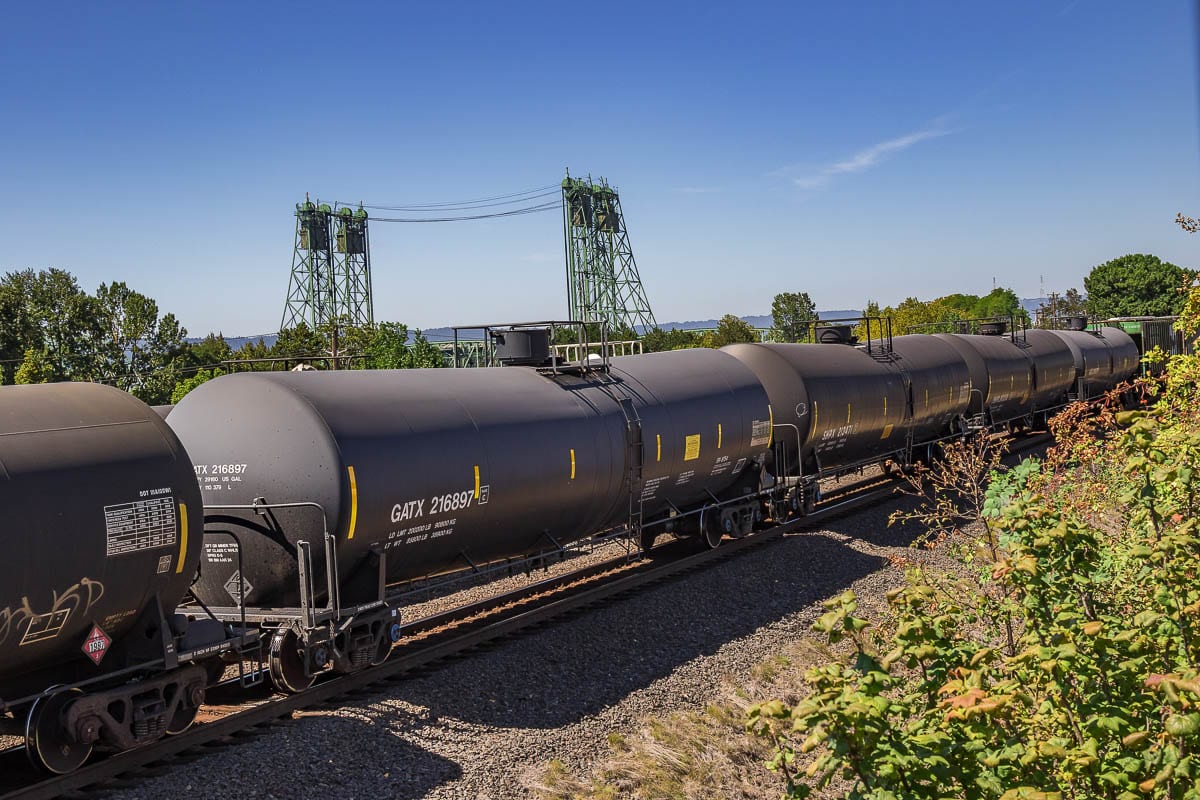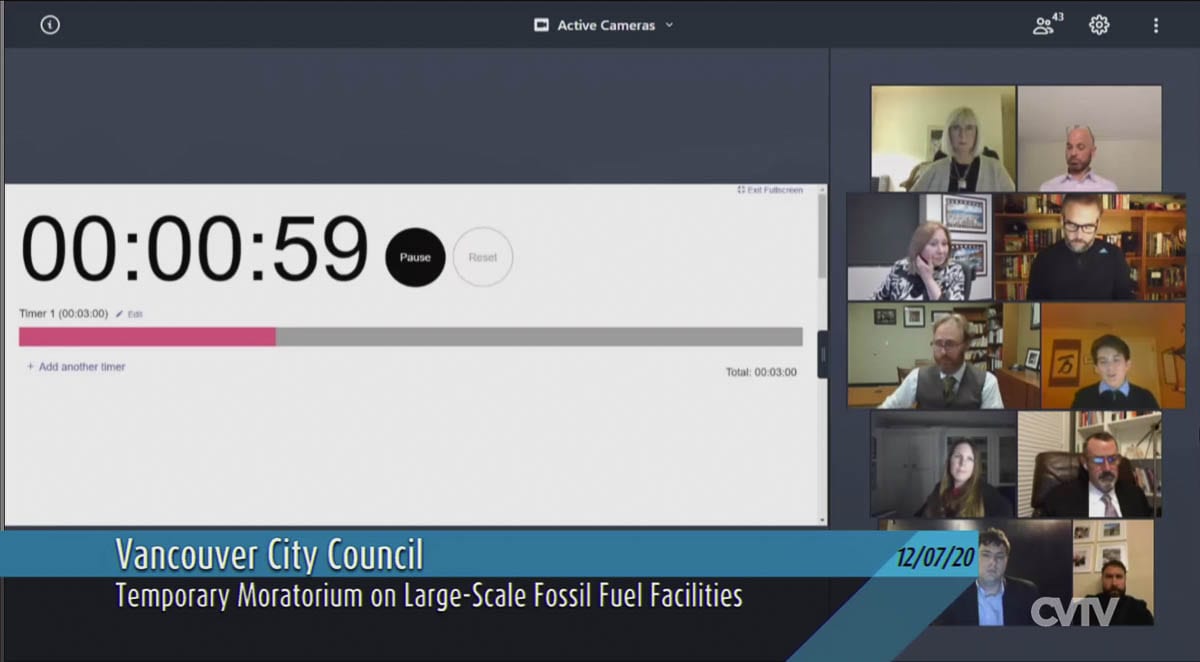Robust public comment calls on council to enact permanent ban on bulk facilities
VANCOUVER — More than 30 people, many high school students from Clark County, spoke during Vancouver City Council’s meeting this week. All wanted the same thing: an end to fossil fuels.
In an effort to allow for the development of a new climate action plan for the city, the council enacted a six month moratorium on new or expanding bulk fossil fuel facilities, and after hearing those comments, voted unanimously to extend the moratorium another six months; allowing staff to continue crafting the city’s strategy.

“It’s vital that we extend the fossil fuels moratorium, or even better yet make it permanent,” said Phoebe Abbruzzese, a student at Skyview High School. “Fossil fuels are in the past. Not only does this industry harm our environment, but economically is becoming weaker. Although it’s not feasible to make an immediate switch to renewable energy, we need to start taking steps away from fossil fuels.”
During the first six months of the moratorium, council has heard options for how to proceed with their desired action plan. In 2007, the then council adopted the city’s first climate strategy, which basically required a reduction in emissions each year.
The new options put together by Cascadia Consulting Group for the city range from 80 percent emissions reduction by 2050, to 80 percent reduction within a decade and carbon neutrality, or even positivity, by 2045 citywide.
Many who spoke to the council during public comment, called not only for the extension of the current moratorium, but for an effective ban of any new or expanding fossil fuel facilities.
“The last six months have demonstrated the practicality of such moratoriums and as a stopgap solution while working towards a permanent ban,” said 16-year-old Jonah Kropp of Vancouver. “A six month extension will illustrate Vancouver’s green ideals. The future of our city, our state and our country is at stake here. Change starts at the local level.”

Several adult speakers represented advocacy groups and spoke to issues that they’re organizations work on, while others had more traditional reasons for commenting. One Camas man explained how his support for the moratorium extension centered on its resulting reduction in oil and natural gas freight passing through his city’s rail lines.
Student leadership from Skyview High School also delivered remarks at the meeting focusing on some economic factors, after originally pushing for the first six months of the moratorium back in July.
“It doesn’t take an expert to realize that the opposition to the moratorium is on the wrong side of the truth,” said Ryan Welch, president of the Skyview High School chapter of the iTUNA (International Teens Upholding Nature Association) Environmental Fund. “Those who push for its removal often argue that it causes city revenue to drop. A brief look at the tax to the ordinance shows the opposite to be the case. In fact, there’s actually a quote ‘slight budget benefit’ due to the reduction in … expenses.”
Looking to the future, one student said she feared potential issues for her generation and ones to come, if action was not taken. Other students drew correlations with recent forest fires. During the meeting, there were no opposition voices, but at the original moratorium meeting, NW Natural Gas pushed for exemption for low carbon fuels.
“As one of the largest cities in Washington, we have the chance to set a precedent for the rest of our state,” said Delaney Humber, a junior, also at Skyview. “By committing to improve our environmental footprint, we will simultaneously create economic growth and increase our public health and safety.”
The council will revisit their work on the city’s climate action plan in the coming days.
Also read:




